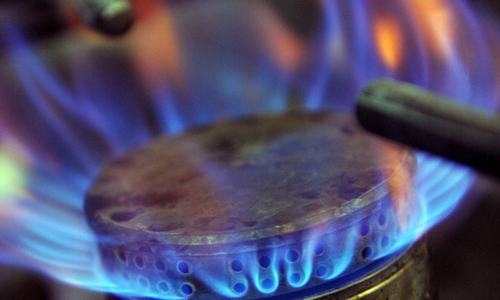
ISLAMABAD: Local production of petroleum products declined by over 10 per cent during the first half of this fiscal year which also led to a drop in its exports.
This was matched by a double-digit fall in crude oil imports, which also translated into lower production of petroleum products by local refineries in 1HFY20.
The half yearly data from the Pakistan Bureau of Statistics show that output of all 11 petroleum components was lower as petrol and high-speed diesel mostly were down 8.68pc and 10.21pc, respectively.
However, in December 2019, production of petrol and HSD jumped 21.11pc and 10.37pc. The production of LPG was higher by 15.13pc and jute batching oil 2.26pc during the month under review while the remaining seven products declind.
The production of furnace oil dipped almost 14.06pc year-on-year during 1HFY20 which could be attributed to the declining share of furnace oil in power generation. Similarly, jet fuel output was down by 6.71pc and that of kerosene by 11.64.
Output of lubricating oil and jute batching oil plunged 22.57pc and 15.67pc during the six months while LPG production and solvent naphta decreased 7.4pc and 0.35pc, respectively.
As a consequence, exports of petroleum products were down by 40.18pc during the first seven months of the current fiscal year. The export of petroleum crude was down by 32.72pc in value and 25.49pc in quantity. The export of petroleum products dipped 69.16pc in value and 63.83pc in quantity.
Similarly, the export of petroleum top naphta also declined by 6.49pc in value. However, it surged by 17.93pc in quantity terms during the seven months of the current fiscal year.
Contrary to this, the oil import bill during the first seven months (July-Jan 2019) fell by 17.91pc in dollar terms as compared to the same period last year despite higher oil prices in the international market.
Total oil imports amounted to $7.13 billion during 7MFY20, compared to $8.68bn during the same period last year. The fall in rupee value of oil imports was relatively lower at 1.41pc because of massive rupee devaluation and amounted to Rs1.11 trillion, from Rs1.13tr.
Import of petroleum products fell 21.83pc to $3.01bn during the seven-month period, from $3.85bn. Likewise, import of crude oil decreased 23.04pc to $2.08bn, as against $2.70bn with even the quantity of petroleum products and crude dipped 10.52pc and 11.32pc, respectively.
Similalrly, liquefied natural gas (LNG) imports declined 6.26pc to $1.85bn during the 7MFY20, from $1.97bn. This would have translated into relatively lower power production through LNG — a replacement for furnace oil.
The rupee value of LNG import was, however, higher by about 12.87pc at Rs289bn, compared to Rs256bn, showing a loss of exchange rate.
On the other hand, liquefied petroleum gas imports rose 21.75pc to $185m, but this could not dent a massive decline in the import bill of petroleum group due to limited volume. The import of other products in the petroleum group fell by 10.8pc.
Published in Dawn, February 23rd, 2020














































